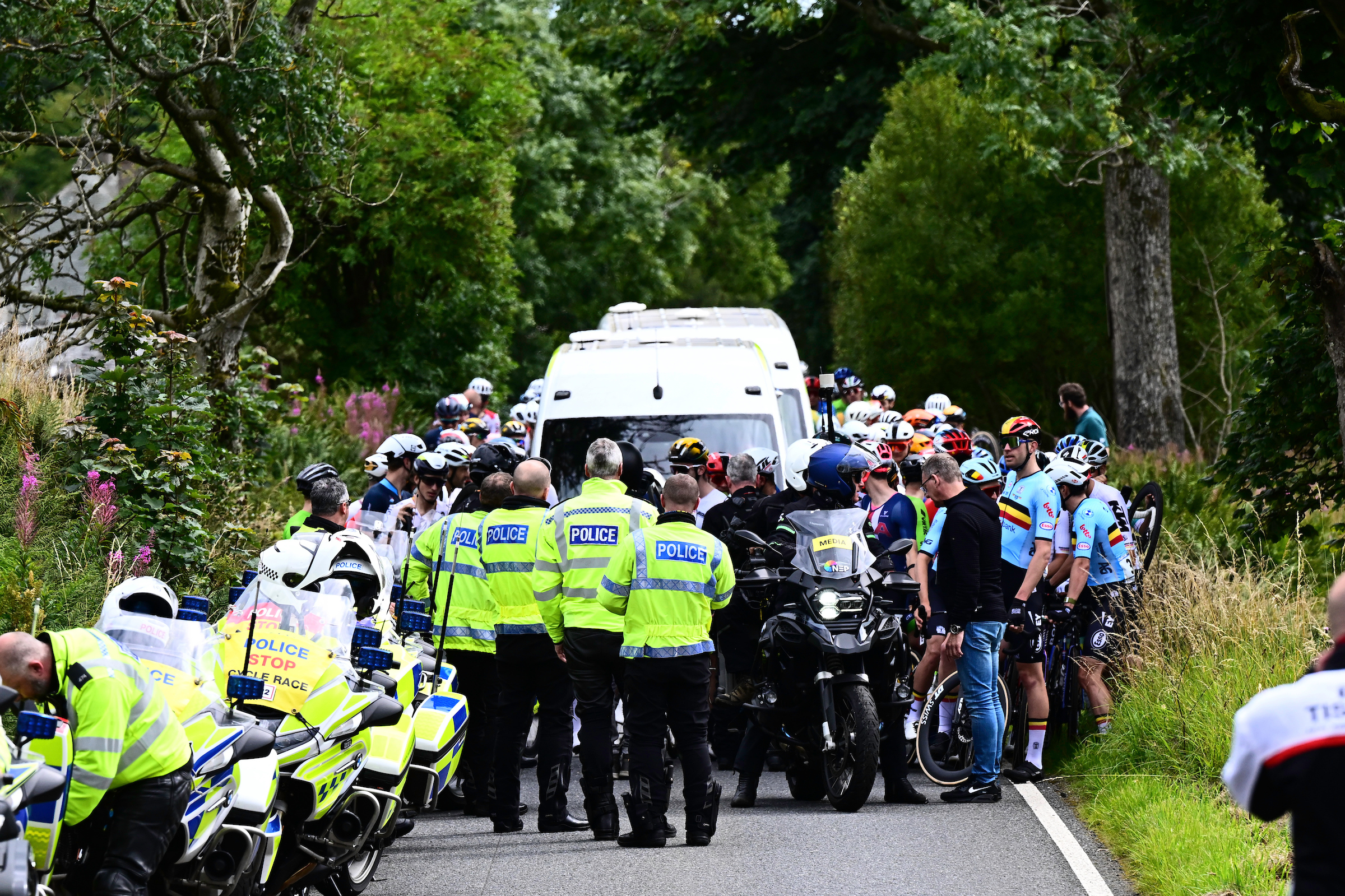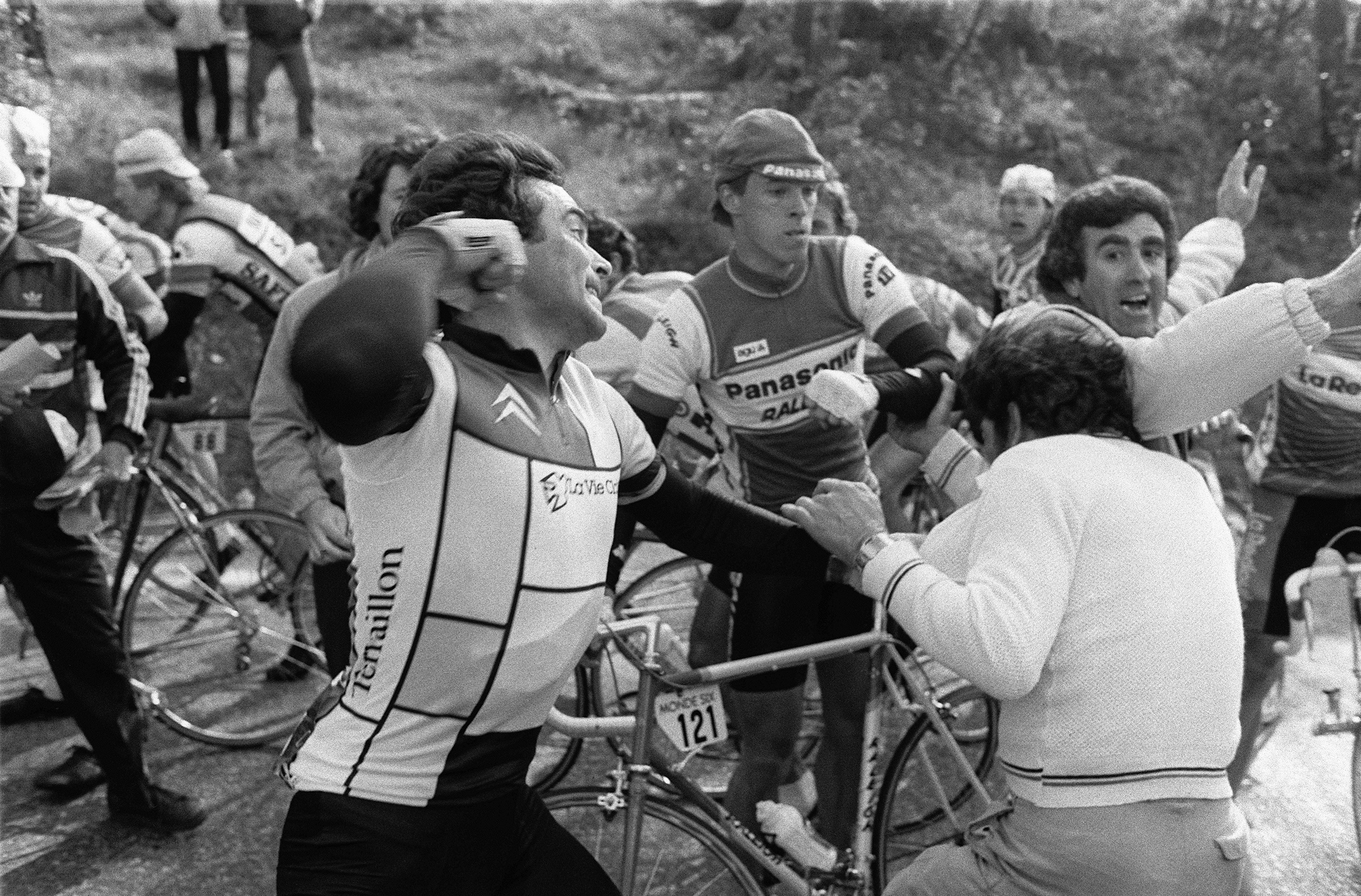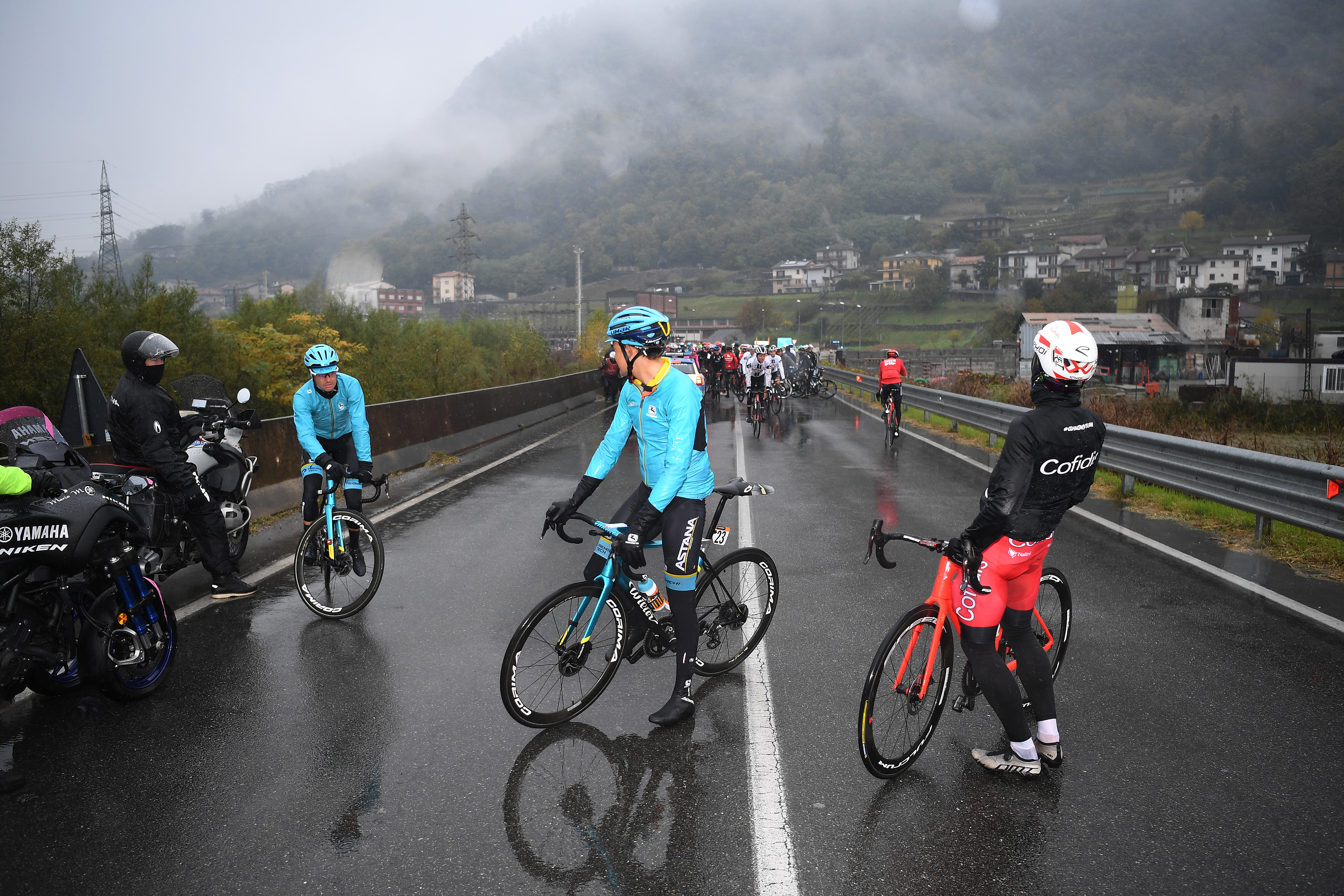
Protesters have been at it again, this time at the Etoile de Bessèges in the south of France, where action by disgruntled farmers prompted the cancellation of Wednesday's first stage.
The threat of protest that caused the cancellation was part of an ongoing nationwide action, with farmers using tractor blockades to protest against EU regulations and demand better prices for their produce.
In a message posted on social media, organisers of the five-day race explained that local government had asked them to cancel the stage "in light of the current social context of the department".
The 160km stage was due to start and finish in Bellegarde and set to be a largely flat outing with an 800m ramp to the finish.
The Etoile de Bessèges, won last year by Neilson Powless (EF Education-EasyPost), is just the latest race to be subject to the grievances of workers and political activists over the decades, with bike races seemingly particularly fertile ground for what are sometimes surprisingly inventive protests.
We look back at some of the memorable ones.
Men's World Championship road race blocked, 2023

You should remember this one, as it only happened a few weeks ago. The elite men's World Championship road race between Edinburgh and Glasgow was blocked by protesters with environmental group This Is Rigged, who glued themselves to the road and succeeded in halting the race for 45 minutes.
The main beef of the group was cited as the involvement of Ineos (the plastic-producing company, rather than the team's riders) within the sport. Five were arrested, and the race was ultimately able to continue towards a memorable finale in Glasgow, won by Mathieu Van Der Poel.
Riders endure pepper spray, Tour de France 2018
When farmers blocked the riders' way using hay bales during stage 16 of the 2018 Tour de France, police decided these protesters meant business – and didn't hold back in trying to get them shifted.
Out came the pepper spray, and while it undoubtedly helped them break up the protest – which was against a cut in state agricultural aid – it also lingered in the air and ended up in the eyes of some riders, including yellow jersey and eventual overall winner Geraint Thomas, as well as his Team Sky team-mate Chris Froome and Peter Sagan
The contents of bidons were put to use as eye rinse, while some riders sought medical attention from the race medics. The stage, between Carcassonne and Bagnères de Luchon, was restarted around 15 minutes after the incident.
Bernard Hinault retaliates, Paris-Nice 1984

What is perhaps the most famous protest in the history of bike race – or the most famous reaction to a protest perhaps – began as fairly standard fare for France in the 1980s. In this particular case, a large group of unhappy workers and union staff from a nearby shipyard spanned the road on stage five of Paris-Nice, hoping to raise awareness of their cause.
But they hadn't counted on the wrath of 'the Badger', leading the race in full flight, and in no mood to be held up.
Hinault rode into the group almost without braking, before dismounting and punching one of the protesters, as others tried to calm him down.
Eventually the race got through, the stage won by Eddy Plankaert in La Seyne-sur-mer.
The Giro d'Italia's divisive Israel start, 2018
A Grande Partenza in Israel was always going to be divisive, and so it proved. Even before the race had begun there had been a protest – by Israel – over the use of the politically-charged term 'West Jerusalem' in the race's official route descriptions. The Giro was forced to change this to simply 'Jerusalem' to avoid Israel pulling out of the event.
Then on stage four, as the race hit Italian shores in Sicily, anti-Israel protesters lined the roadside to make their feelings clear: 'Israele assassina - Italia complice' read the banners.
MOR march, Tour de France 2003
No matter how much EPO is coursing through the veins of the peloton, you're still going to get protests, as was demonstrated by the supporters of jailed anti-globalisation activist José Bové at the 2003 Tour.
The protests took place on stage 10, and saw demonstrators marching down the middle of the road in support of Frenchman Bové, who had been sentenced to 14 months in jail the year before, for destroying genetically modified crops.
Reports from the time describe the race as being briefly halted as "police dragged protesters away".
And what about the riders?

While bike racing sees regular roadside (and in-road) protests by groups representing any number of causes, the riders themselves have been known to protest themselves – generally about race conditions.
In one notable example from not so long ago we saw stage 19 of the 2020 Giro d'Italia to Asti halved in length after riders objected to taking on its original 258km in awful weather conditions.
But rider protests are as old as the sport, with the 1924 race, for example seeing protests at working conditions that included the defending champion Henri Pelissier quitting the race in disgust, famously complaining that cyclists were 'forçats de la route' - convicts of the road.
Possibly the most famous rider protests took place at the 1998 Tour de France – the year of the Festina Affair. Even with one team thrown off the race and EPO apparently rife throughout the peloton, the riders remained baffled that the media – and indeed the police – seemed unable to simply sit back and enjoy the racing. They showed their displeasure with sit-down protests in the second and third weeks.







